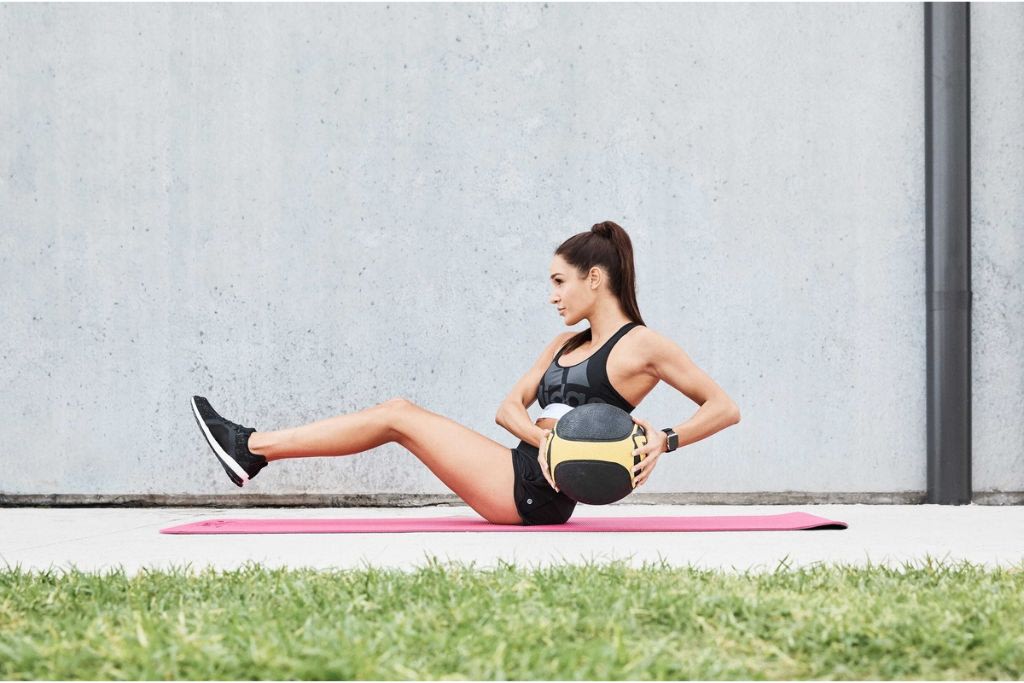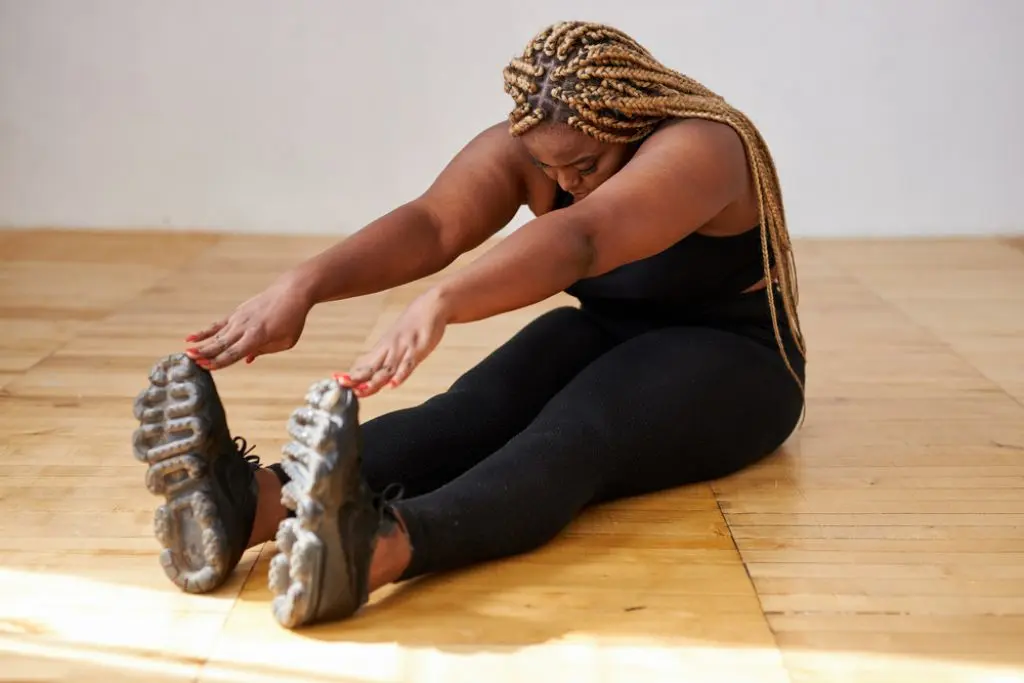Is Working Out Everyday Bad?

September 29, 2022

Whether you’re at the start of your fitness journey and trying to figure out your workout schedule, or you’ve been exercising for a while and are thinking about how to take your fitness to the next level, it’s common to wonder - should you workout every day?
The answer? Well, it depends.
It depends on things like how you define a workout, your nutrition, mental wellbeing, energy levels and motivation - to name a few. Let’s break down the different factors that play a role to help you find balance and create healthy habits that last.

The intensity and training style
When planning your workout schedule, it’s important to take into consideration the intensity and training style of each exercise session. For example, HIIT workouts can be a lot of fun and deliver a lot of bang for your buck when it comes to seeing improvements in your fitness, but scheduling a HIIT workout every day isn’t recommended due to their intensity and the stress it puts your body under.
It’s best to alternate HIIT with slower strength training or low-intensity steady state cardio such as walking or cycling, and Sweat’s HIIT programs such as High Intensity with Kayla Itsines and FIERCE are structured this way to ensure your body has enough time to recover.
On the other hand, if your workouts are low to moderate in intensity, your preferred training style that isn’t very strenuous, or you like to mix training styles, you’re probably fine to complete a workout each day (if you want to).
What do we mean by a mix of training styles? The US Department of Health and Human Services recommends four types of exercise to improve your health and physical ability: endurance, strength, balance and flexibility. If you want to complete a structured workout every day, try to include a balance of these four components.
What about daily weight training? Should you workout every day if your goal is to gain muscle? When trying to build strength and muscle, remember the gains happen during your rest days, not your workout time. While you can schedule strength training on consecutive days, alternating between muscle groups is recommended to give your body enough time to recover. Even if you’re alternating muscle groups, it’s still recommended you have at least one rest day each week.
If you’re completing full-body strength training sessions, it’s recommended you schedule at least one day in between, where you can continue to keep active with things like walking, cycling, playing with your kids or pets, and stretching.
Finding a way to move your body every day has so many benefits and gets a big tick from us, but pushing your body to its limits every single day does not.

The duration
Just like your workout intensity plays a role in whether you should work out every day, so does the duration. According to the Physical Activity Guidelines For Americans, adults should do at least 150 minutes a week of moderate-intensity exercise or 75 minutes a week of vigorous-intensity aerobic physical activity, or an equivalent combination of the two.
If you’re completing intense workouts longer than 30 minutes, it’s a good idea to have days in between where you lower the intensity and focus on other ways to be active throughout the day. Head Trainer Kayla Itsines completes three 30-minute workouts each week and her dogs and young daughter keep her active when she’s not doing a structured workout! For an added dose of movement motivation, setting yourself a daily step goal can be a great idea.
If you’re someone who finds committing to exercise and staying motivated is easier when you do shorter, 15-20 minute workouts, a quick blast each day is probably fine! Just remember to listen to your body - if you feel fatigued or are experiencing sore muscles for longer than 2-3 days, incorporate more active rest days in your routine.

Your headspace and motivation
For many people, finding the motivation to get moving is a challenge. For others, the tough part is making sure your motivation comes from the right place.
A simple trick is to check in with yourself before each training session. Are you working out because it makes you feel amazing and you’re enjoying your fitness journey, or because you’ll feel guilty if you don’t? You always want it to be the former!
If you feel bad on the days when you don’t complete a workout, or you struggle to slow down when you’re tired, injured, stressed or unwell, it might be time to pause and reset your mindset, or seek support if you need some extra help reframing your relationship with exercise. Kelsey Wells’ Redefine Fitness program in the Sweat app may also be a great option, as it incorporates gratitude and affirmations to encourage you to approach movement in a more positive light.
With a busy schedule, it’s normal for a daily workout to sometimes feel unachievable and it can also lead to mental burnout or a lack of motivation. Having days where you don’t work out is nothing to feel guilty about and looking after your mental wellbeing and practicing self-care are so important.
Your rest, recovery and energy
The last thing you want is to end up with fatigue or workout burnout from overtraining. Signs to look out for include slower recovery time, constant muscle aches, decreased workout performance or progress, constant tiredness or trouble sleeping, decreased libido or appetite, slow-healing wounds or bruises, or feeling moody.
When your body is calling out for rest, listen! Leading a fit and healthy lifestyle is a long-term game, so focus on creating positive habits you can sustain for years to come, rather than weeks or months. A big part of that is getting enough rest and quality sleep! Make rest a priority from the start, rather than waiting until you hit a wall.
Yes, a daily workout can be okay for some people if the intensity isn’t high or the duration is short, but for many of us, daily workouts can start to take a significant toll on your energy, mood and performance - and ultimately your fitness goals. Figure out what works best for YOU.

Your menstrual cycle
Another sign of good health is a regular menstrual cycle. While the average cycle length is 28 days and this can vary for each woman, it pays to keep track of your periods and symptoms.
If your cycle changes, suddenly becomes irregular, or disappears completely (known as amenorrhea) it can be a sign of things like stress, overtraining or hormonal changes, and you should book in to see your healthcare professional.
Your nutrition
If you workout frequently it means a lot of energy going out and it’s important to make sure there’s enough fuel going back into your body! Try to eat three good meals each day with a lean source of protein, plus any snacks in between if you get hungry.
Depending on your lifestyle and work, some days it might be more difficult to find time for three proper meals. If you’re feeling hungry or low in energy, it might be a good idea to take a rest day or focus on more gentle styles of movement like walking or yoga to avoid depleting yourself even further.
If you’re very active, make sure you’re eating enough!
Level up your fitness
If a short daily workout fits best with your lifestyle and leaves you feeling great - amazing! But if you’re looking for a way to take your fitness to the next level, remember that daily workouts can sometimes take you further away from your goals. There are much more effective and sustainable options than completing an intense training session every day.
From setting yourself a weight-lifting goal, focusing on progressive overload, trying to master an advanced variation of an exercise, or working on your flexibility, there are many ways to see results and challenge yourself without burning out.

A more empowered you starts with Sweat, and our editorial team is here to bring you the latest fitness tips, trainer recommendations, wellbeing news, nutritional advice, nourishing recipes and free workouts.
* Disclaimer: This blog post is not intended to replace the advice of a medical professional. The above information should not be used to diagnose, treat, or prevent any disease or medical condition. Please consult your doctor before making any changes to your diet, sleep methods, daily activity, or fitness routine. Sweat assumes no responsibility for any personal injury or damage sustained by any recommendations, opinions, or advice given in this article.
Fitness